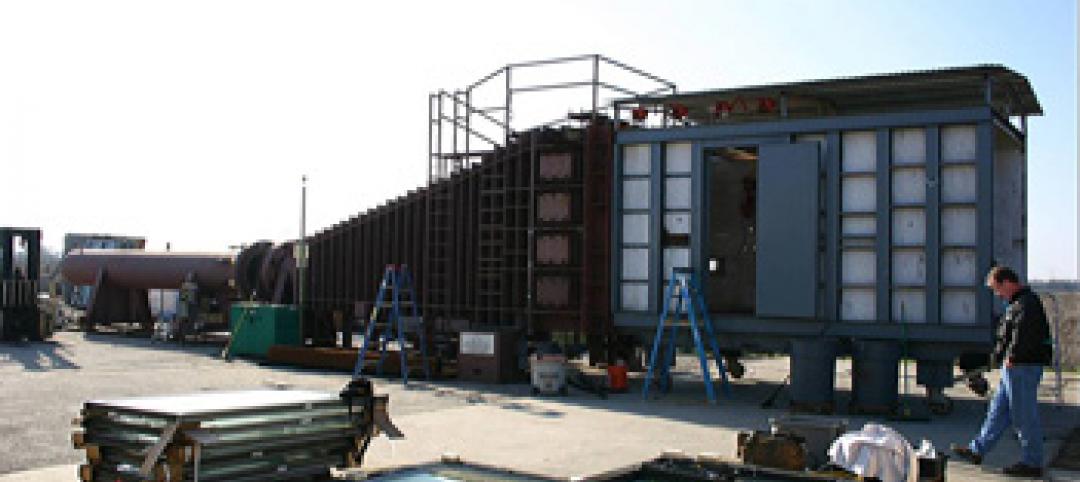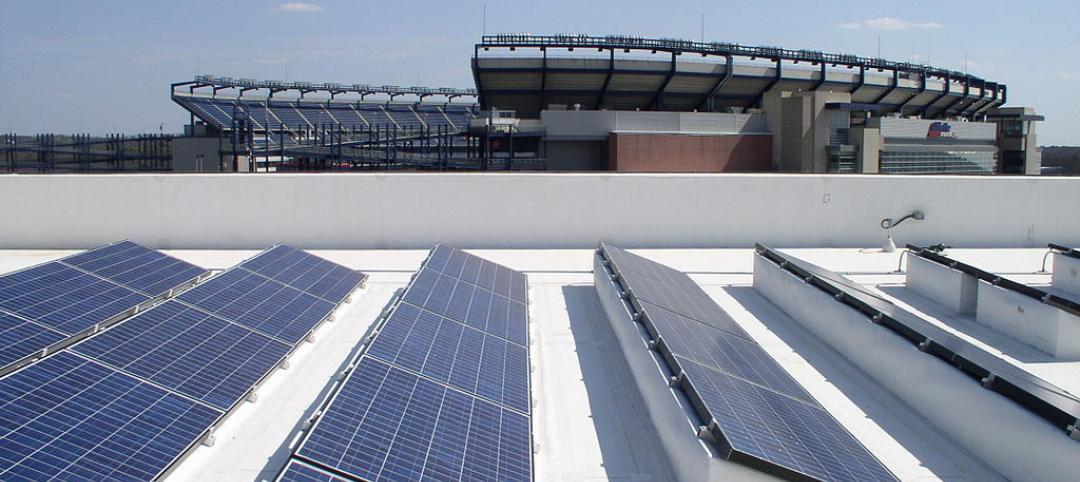According to the International Energy Agency (IEA), buildings and the construction sector combined are responsible for nearly 40% of total direct and indirect CO2 emissions.
Emerging technologies are making it possible to mitigate that impact by turning buildings into power plants, a concept called building-integrated solar power (BIPV). Rack-mounted PV arrays on rooftops are the most common way to generate solar power on buildings, but this solution has some drawbacks.
Some consider rack-mounted PVs as eyesores, particularly when considered for historic buildings. This can be a barrier to wider adoption in urban architecture.
Other options including monocrystalline solar panels, dye-sensitized solar cells, and perovskites make it possible to alter the color of solar power generating cells. This makes them more attractive than conventional PVs and suitable for use on facades and walls. In some formulations, these materials can be made semi-transparent so that they can be used for fenestration.
Related Stories
| Nov 26, 2014
Colorado must fix construction defects law, Denver Post says
Colorado's “vexing construction defects law” has hampered the building of new condominiums in the state, according to an editorial in the Denver Post.
| Nov 26, 2014
Cheyenne, Wyoming City Council kills downtown design standards proposal
The Cheyenne, Wyoming City Council voted down a measure that would have implemented design standards for new construction and building additions downtown.
| Nov 26, 2014
ASTM International develops first product category rules for asphalt roofing industry
The Asphalt Roofing Manufacturers Association (ARMA) and ASTM International have developed Product Category Rules (PCR) for asphalt roofing in North America.
| Nov 26, 2014
International Green Construction Code will include option for outcome-based approach
The outcome-based approach requires the building owner to provide the building’s utility bills for a 12-month period within three years.
| Nov 20, 2014
Pentagon is reviewing hospital construction standards
An independent review panel of military specialists met with healthcare leaders Nov. 12 to consider whether construction standards for medical centers should be strengthened to align with industry best practices.
| Nov 20, 2014
ConsensusDocs releases first standard agreement for commissioning contracting
The new standard contract provides a contractual vehicle for owners to save significant money from operation and maintenance costs regarding energy performance.
| Nov 20, 2014
Revamped zoning is transforming several New Jersey downtowns
The zoning policy shift could produce the biggest transformation of North New Jersey’s downtowns since the arrival of malls pulled shoppers away from town centers in the 1960s and 1970s.
| Nov 20, 2014
ANSI approves 2015 Wood-Frame Construction Manual standard
The American Wood Council's 2015 “Wood-Frame Construction Manual for One- and Two-Family Dwellings” (WFCM ) has been approved as an American National Standard by the American National Standards Institute (ANSI).
| Nov 17, 2014
AAMA releases new blast hazard mitigation specifications for vertical fenestration systems
This document provides a guide for manufacturers, architects/specifiers, contractors, and building owners for specifying types of systems and services to meet the requirements of blast hazard mitigation.
| Nov 17, 2014
National Roofing Contractors Assn. offers guide for LEED v4 provisions
National Roofing Contractors Association has released LEED v4: Roofing-related Provisions, a document that examines the roofing-related provisions of LEED v4.












